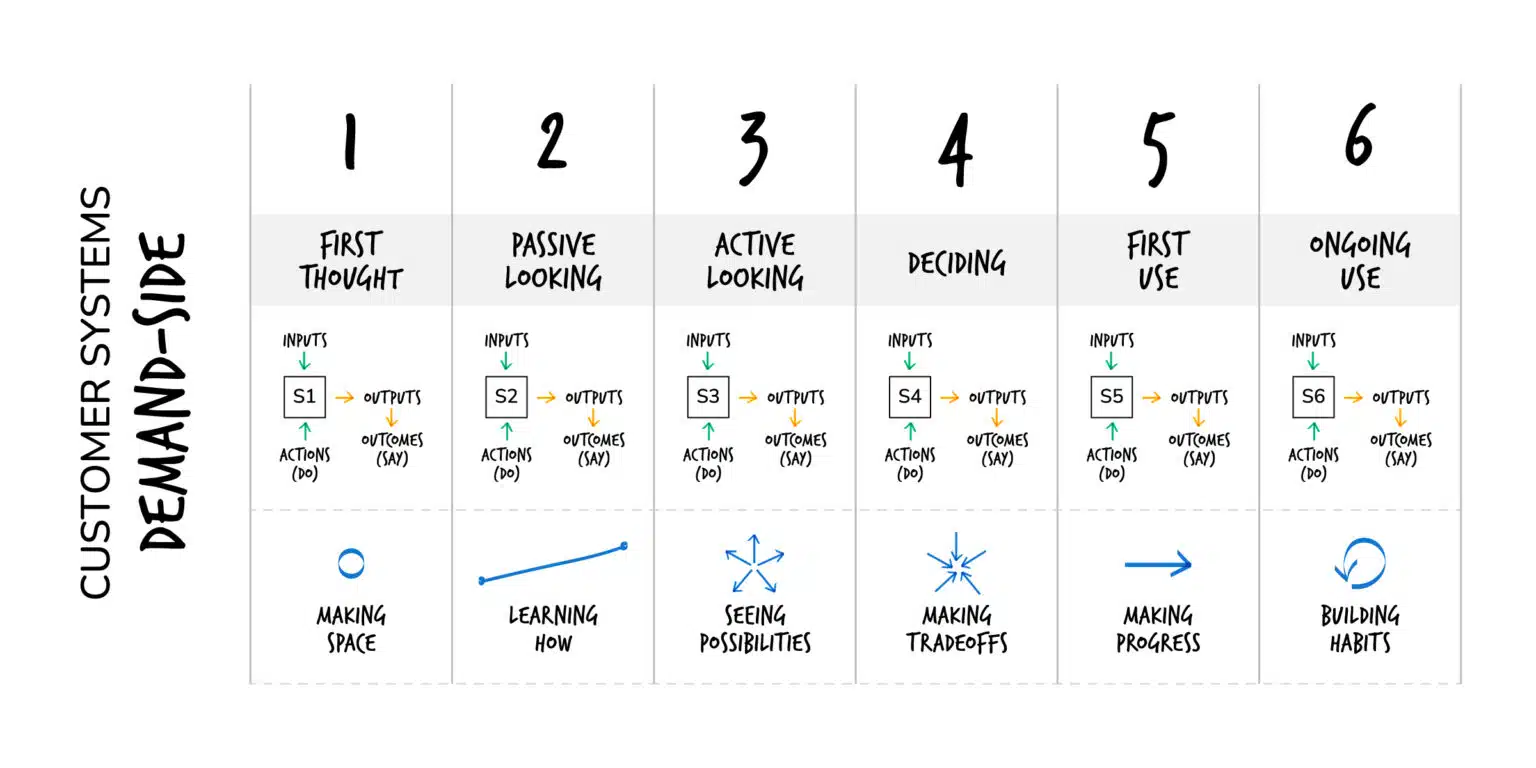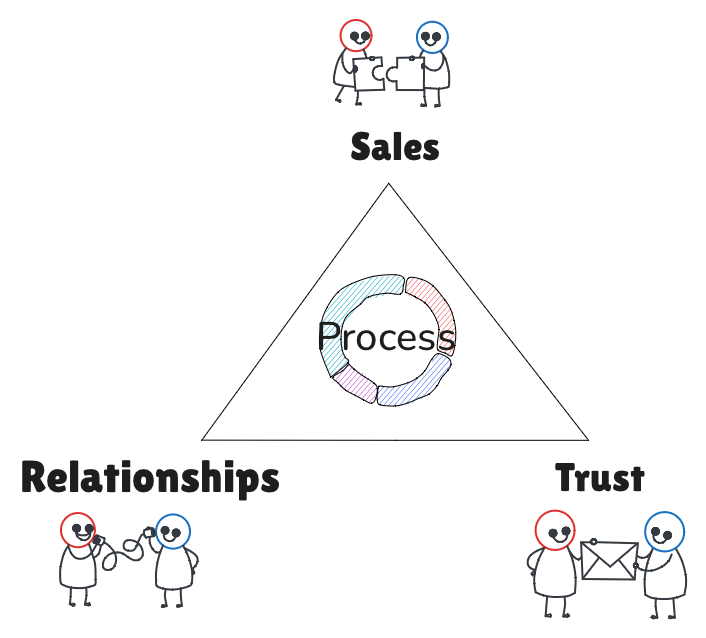Sales, trust and relationship
I'm tackling the tricky balance between trust, relationships, and scalable sales in logistics.
My tussle with trust and relationships
Trust. Its all about trust and relationships. This is what one hears when interacting with front line teams in logistics. I forgot, “people and trust are the foundation of our business” is also often stated.
I don’t have any vengeance against relationships but I don’t buy it as a core reason for transactions taking place in logistics space. I am specifically mentioning logistics here since I operate in this space actively these days but it also applies to many if not all legacy domains.
Let’s go back a few years to Subjimandi.app days. I kept hearing about relationships and trust as deterrents to try grade wise procurement of produce. The front line team was having this mental block after few rejections.
Second, moving to my operator days at a larger startup in agri-trade. The same thing was being recommended to us for building the logistics work stream.
Now, as a product person in log-tech space in a completely new region. I am faced with a similar issue where our product’s adoption is curtailed due to relationship and trust between counter parts on our product.
Each time it comes down to framing the change in the context of the customer. We frame the change as a shift in their worldview of trusting the process(our approach) over the person(incumbent). We cannot compete on the relationship front with the incumbent. The time it will take is longer and it would entail a form of sacrifice(heavy discount) for the customer to take chance with us. This is not a repeatable task and correspondingly not scalable.
I say this specifically for legacy domains because most of service providers in these domains are commoditised. For a person buying a service the options are many and they overstate relationship when they mean convenience. They have been working with the incumbent for a specific service for a certain period because it makes their life easier. We come in and say you can do better with us. But they weigh it against the value benefit to effort it takes for them to shift. This is where trust often comes into picture. They can ask “why should we trust you?”
Similarly if we are selling a digital product or different approach. The same questions come up and the inertia is the friction that kills many deals.
Every time for the sake of time, a leader takes a call and decides to just throw people at the problem. Like hiring a bunch of people who are trustworthy in the market to start selling their service or product. After a period, they come to regret it once the growth starts to taper after the initial jump. This is so true for companies offering marketplace services where transactions take place on a regular cadence.
In such cases, customer don’t have relationships with the company, they have it with the people employed by the company. If and when the person leaves the company and they were good at maintaining relationships, customers stay as long as contract is valid. Then they are free to move to the new company where the person moved. Agriculture in India is littered with this people shifting from company to company by keeping the same customers. This is why relationships built on personnel trust are a slippery slope for doing business.
Selling like every other process comprises of art and science. I keep coming back to this handwritten screenshot of Kuldeep who is crazy good at selling entreprise software. It establishes that sales like operations has process and people.
We need to focus on the process more than people if we want to build a scalable and unifying customer sales approach.

Lately, I am trying to unify my own understanding of this skill. I clearly don’t have enough reps because in all my stints, I am not the one selling but I am one setting up the process(science in the image) for sales. And I have come to a realisation of “Slow is smooth, smooth is fast” when it comes to defining how we sell a service or product(or service assisted by product).

This scene from modern family stuck with me which is very on point to this newsletter. If you are new, the name of this newsletter comes from a dialogue of different TV series.
Establishing a process first and then building the personnel around it may start slow but has the potential to really scale with the product/service growth.
Demand side sales a framework popularised by Bob Moesta is a good to build the sales process.

I have already written enough about sales, trust and relationships but I am not done. Stay tuned as I keep unpacking this triad.

Round up
All the links for the roundup come from LinkedIn only.
The Art and Science of Sales
I wrote about Kuldeep’s sales screenshot which crossed my own network and got engagement from newer people.
Why Challenger Sales is an effective sales method
I posted about worldview in sales by combining both challenger sale and sales safari process distilled in commoncog.
Management using knowledge
This post is about figuring out how to put XMR charts and the tool provided by commoncog.
Links that resonated
We got two links that are saying the same thing by addressing different facets of the issue. Non-fiction books need to be more narrow and specific in their message and recommendation respectively.
Books and Murray Gell Mann Amnesia
I guess this is the problem with writing nonfiction books, and something I should have taken into account when I started writing my book a decade ago - in a nonfiction book you end up commenting on a large variety of topics, and if you get something wrong, someone with some domain knowledge in that topic will see through your BS, and lose faith in the rest of the book.
Karthik talks about Gell Mann Amnesia effect that he faced while reading non-fiction and why authors should take this into account.
Extreme Ownership
My point is that most advice is only situationally correct - it’s the right advice for specific people facing specific challenges. For instance, most businesses should try to be profitable; following Hoffman’s advice is a recipe for disaster, but considering his assumptions provides valuable perspective into your own situation.
Felix talks about the problem of trying to apply an idea universally which is how business books are written.
Sign off
Writing these business or work domain focused stuff is getting harder for me. I was naive to think 72 of them would be sufficient to keep shipping new issue each week. I still fight writers block to get some words on the screen. I am short of the 100 I set out to write 2 and half years back.
So much for trusting myself to keep it going every week. I still write in bursts and that is untenable with my personal life at the moment. When I started this newsletter, it was my outlet as a founder. You will see many essays during that phase of the newsletter. I changed it up when I became an operator because I had time to pursue other pursuits on the side.
But at this moment, neither are probable. I am busy trying to get accustomed to the new region. I am this close to shifting the format of the newsletter once again to align more with my latest fascination with weekly notes. Hopefully, we don’t come to that and I get my act together.
Signing off till next time,
Vivek, trying to get a handle on things